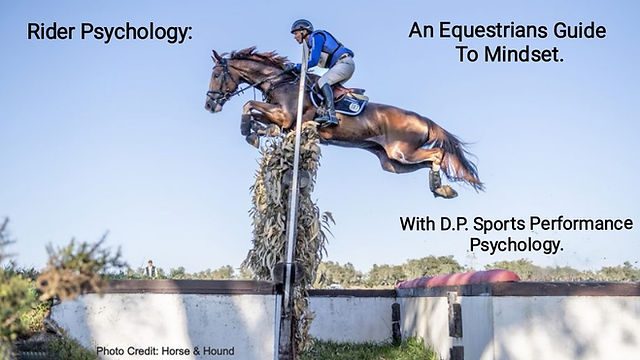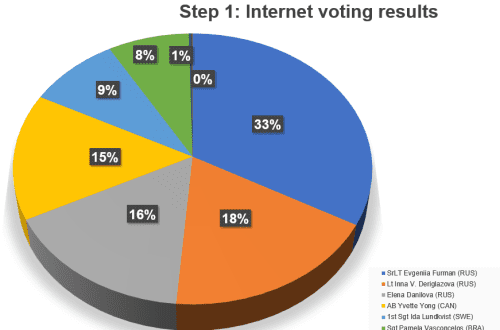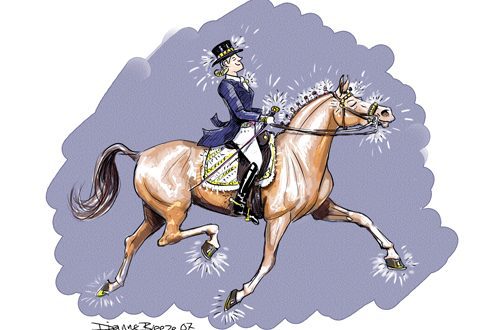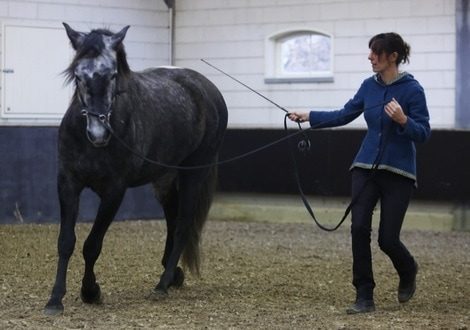
Rider Psychology: Strategies for Progressive Training
Rider Psychology: Strategies for Progressive Training
Why do some riders seem to develop much faster than others? Have you ever felt stuck on the same problem or at the same level for a long period of time? Last January, I wrote an article for Dressage Today titled “Accept Our Incompetence” about the four stages of learning that every person goes through to acquire any skill: unconscious incompetence, conscious incompetence, conscious competence, and unconscious competence.
1. Unconscious incompetence: You don’t know that you don’t know anything.
2. Conscious incompetence: You know what you want to do, but you can’t do it.
3. Conscious Competence: You can complete a task if you focus on it, but it’s difficult.
4. Unconscious Competence: You can do what you want without thinking about what you are doing.
What frustrates us the most is the stage of conscious incompetence, because we know what we would like to do, but we still cannot achieve what we want. This frustrating, irritating situation becomes the moment when real learning begins, the moment when it is especially important to recognize the responsibility of the student to start thinking positively and open his mind in order to be receptive to learning and development.
You may have noticed that some people seem to get past this stage of conscious incompetence very quickly and improve their skills rapidly, while others take a long time to get to the next level of riding. Why is this happening? Is it just talent? Luck? Maybe it’s because some riders have the money to buy a great horse, and some can’t afford it?
I am convinced that none of the above factors really affect your ability to progress. Some mental strategies regarding learning are important. And just like any other skill, you can improve these strategies with practice. The three strategies below involve beginner thinking, distinguishing between excuses and reasons, and focusing on reality rather than stories.
Adopting a beginner’s mindset
The first strategy I want to introduce is adopting a beginner’s mindset. This concept is taken from Zen Buddhism, but you don’t have to become a Buddhist to use it. The idea for the beginner is that he needs to temporarily put aside all opinions, beliefs, previous experiences, etc. and open himself to the lessons that his teacher is trying to teach him. This mindset is easier to use at a “lower” level when you are really a “beginner”, but it can be useful even when the rider considers himself an expert or has been riding for many years.
The concept sounds simple, but accepting a beginner’s mindset becomes quite difficult when you have many different experiences, feelings, or opinions ringing in your mind. I like to do the following: I mentally take all the preconceived ideas, opinions and beliefs and hide them on the shelf. I promise myself that at the end of the lesson, they will be where I left them, and I can take them back if I want. When a student allows himself to say, “I don’t know,” he opens himself up to further learning andоmore knowledge. Instead, we so often say phrases (both to ourselves and out loud): “I know, but …; I know, but I don’t know how…; I know, but my horse is not….; I know, but I need…; I know, but I always…. »
“I know” can be either a true statement or a 100% lie. Having an internal dialogue that begins with “I know” keeps us from the present and keeps us living in the past. This does not allow us to get ideas, to meet surprises and discoveries, to perceive new knowledge about ourselves and our horse. The beginner’s mindset does not require you to start believing in something new, something concrete. You just need to put old beliefs aside for a short period of time while you are learning. This is often why instructors say they love teaching kids. Children tend to have very few preconceived notions and beliefs and are much more open to saying “I don’t know”. We adults have a lot more experience than children, but is it always to our advantage when it comes to riding?
Jen Verharen, business coach and life coach and dressage instructor, sums it up: “Curiosity is both the worst thing and the most powerful thing when you are learning a new skill. When you find yourself making excuses, ask yourself questions: what do I want in this situation? What is possible to get? What can I control?
The difference between excuses and reasons
Excuses, at first glance, sound the same as reasons. But justification is meant to reduce or eliminate obligations and responsibilities. A cause is the explanation for an event or series of events. The main difference here is responsibility. This is the ritual of going through the frustrating stage of conscious incompetence when you learn a new skill. Let’s say you realize that you need to ride so that the horse gets on the bit, but you can’t do it. You will have to experience the same feelings of frustration, confusion and lack of coordination that we all went through in this situation. If you take responsibility for your learning, you will be able to move through these feelings more quickly and move into the stage of conscious competence. Then you will see that you can ride the horse and keep it on the reins automatically, allowing you to focus on other parts of the puzzle.
Your instructor will help you with the necessary pieces of the puzzle – how to achieve a more balanced and efficient seat, how to create enough momentum from the hindquarters to push the horse into contact, how to bend the horse around his inside leg and drive him onto the outside rein, etc. The horse will start rounding the frame. Here and there, you will find it and lose it again. When you lose the feeling that things are working out, it’s easy to come up with excuses: The horse’s previous training wasn’t good. I need another snaffle. I can’t have an effective fit because of my saddle / my breeches / my boots. My horse is so stiff and enslaved that… All these excuses put the blame for your struggle to master a new skill or concept on someone/something else.
Reason is different from justification. When the horse is kicked off the snaffle, you can allow yourself an internal dialogue about the reason: I gave up too much rein. I find it harder to use my left leg/arm than my right. I let the pace slow too much. These reasons are not negative. These are just honest reasons that can be corrected next time. Some causes are harder to fix (I have a hard time sitting properly due to an injury, I have a hard time getting the horse to move from the hindquarters because of his hock problems). But if the reasons you have identified are true, then a strategy can be found to deal with them.
When you catch yourself making excuses, ask yourself what your goal is. It will redirect your thinking. Let’s say your horse is cantering over the reins. Your initial thought was, “My horse refuses to round at the canter.” It is not true. No horse knows that he must remain on the bit. She cannot suddenly decide to raise her head in spite of you for no reason. In fact, she doesn’t know what “on the occasion” means in the way that you understand it. The more likely truth is that you lost balance and/or lost contact while cantering and the horse protected itself by lifting its head up.
So what is your goal? You need to do a smooth, balanced canter in a circular box. You can sort everything out with your instructor. What happens before the horse raises its head? Are you losing your fit, losing momentum, or losing contact? Once you figure this out, you can be an intentional rider rather than a reactionary one. The reaction rider would say, “Ugh, she did it again. Now I need to lower her head.” The intentional rider will plan in advance how to prepare for the next canter. If you change your self-talk to “I should straighten my body as I prepare to canter and push the horse around with my inside leg,” then you will move into positive action rather than negative thinking and expectation.
“How often excuses and stories lead us down a path that is the exact opposite of what we really want to go,” says Verhaeren. This can be frustrating and misleading! Focusing on the desired outcome when learning a new skill will help you become a strategist, not a loser.”
Excuses keep riders from trying to face their fears. When you face the same problem over and over again, ask yourself, “What am I afraid of?” Perhaps you are not afraid of anything. But you have a previous experience that frightened you, or you are afraid of failure, or you are afraid, having raised one problem, to face another, more serious one. Talk about this fear out loud and your coach will help you deal with it. Verhaeren sums it up like this: “Justifications have no power and are the result of defeatist thinking. Reasons give authority to resort to strategic thinking.”
Focus on reality, not stories
We all have stories that we tell repeatedly about a situation. But, if you step back and take a critical look at this situation, you can sometimes find that these stories are not true. As riders, we must ask ourselves: what is reality and what is history? This is similar to excuses vs reasons, but there are some differences. If we are stuck telling ourselves the same old story, our learning is difficult.
You may have received 64,57% for a Level One ride last year. But in the end, this result is history, because the scores have become the subjective opinion of one person – the judge. We can use his opinion (and this will help us in our work), but we should not remember him again and again, because what happened is in the past.
History often slows down the progress of a rider who has been working with the same horse for a long time. If the rider started working with the horse when it was still very young, he will easily say, “My horse always struggles in the left canter, it has been that way since the age of four.” It may have been true at one time (when she was 4), but to keep repeating this story now that the horse is 7 is not rational, and it does not help you progress. Such a rider will end up living in the past rather than the present, unintentionally perpetuating the behavior he says he wants to change.
Another case where history can be detrimental to progress is assumptions that keep the rider out of his comfort zone. For example, you might think that the other participants in a tournament think you’re not good enough, and that thought will keep you from performing well. But the reality is that you don’t really know what other people think and their thoughts don’t affect your horse. Another example is that you think that you will offend your coach if you go to a master class with another visitor. This story may prevent you from taking the opportunity to train with a great master. You don’t know what your coach thinks about a situation until you ask, and a decent coach will never talk you out of a good training opportunity.
Identifying reality and history can help the rider grasp the concept of the beginner’s mindset. Let’s say you realize that the story is that you think the horse is bad at cantering on the right foot. Just by realizing that this is a story and not reality, you can change your thinking to open yourself up to something new during today’s lesson.
Your coach is responsible for teaching you everything he has to offer. But we, as students, still haveоIt’s a big responsibility that comes with being good students. When you think of some great rider, you can probably bet that he is an exceptionally diligent and good student. Great riders are open to any learning opportunity. They don’t make excuses, but instead identify the reasons why they can’t do something and slowly work to fix it. They are constantly reminded of the reality of the situation rather than telling stories. All these methods allow them to gradually but steadily progress. If you’re feeling stuck on something, try working through one or all of these concepts and see if you can improve your learning curve by starting with your mental state. Our horses live in the moment and they don’t lie to themselves. And this is where we should learn from them.
Eliza Sydnor Romm (source); translation Valeria Smirnova.





